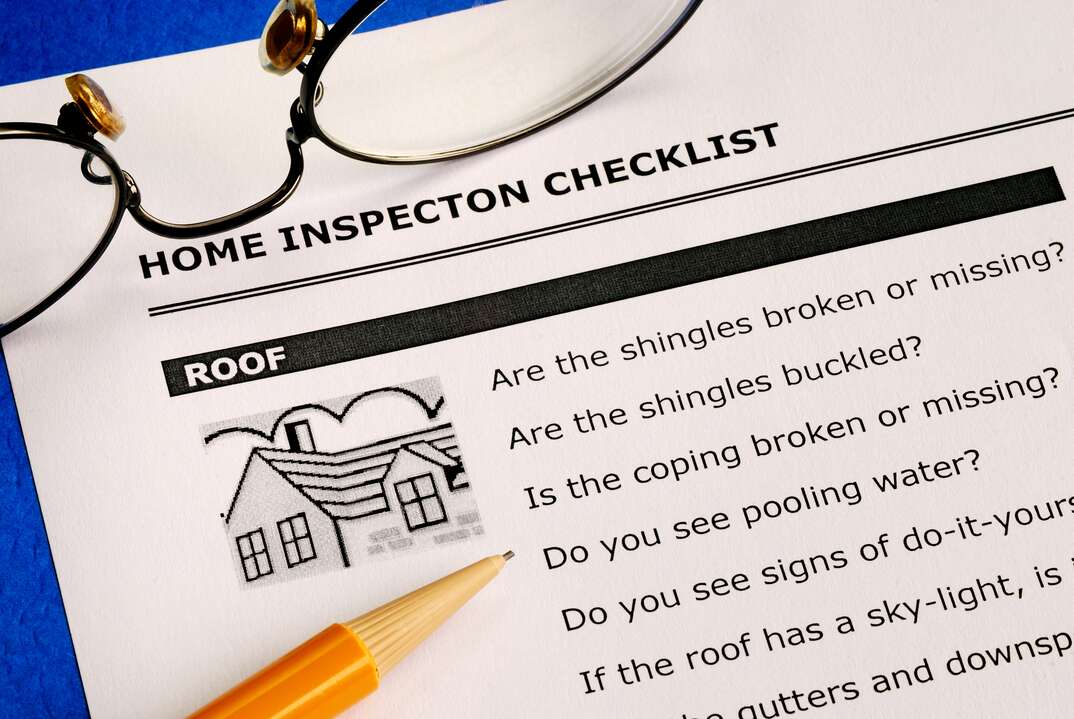- AppliancesElectriciansHVACLandscapingLocksmithPest ControlPlumbingRenovationRoofingT V RepairAll Home Improvement
- Car AccidentClass ActionCorporate LawCriminal DefenseDivorce LawEmployment LawFamily LawFinancial LawLegal AidMedical Injury LawyersMedical MalpracticeReal Estate LawWater Fire RestorationAll Legal
- InvestmentRetirementAll Finance
- Animal InsuranceAutoGeneral InsuranceHealth PolicyHome RentersAll Insurance
- DentalHealth SpecialistsAll Medical
- Animal CareVeterinaryAll Pets
- Auto GlassTowingAll Automotive
What Is a Home Inspection Like?

You’ve found your dream home, signed the contract and planned exactly where your dog’s bed will go. But don’t move too fast; a house is one of the most expensive purchases you’ll ever make, so you have to do your due diligence. That means having a home inspection.
Read More Home Improvement Articles
A professional assessment from a home inspector ensures any problems are identified so you can make an informed decision about your purchase. Most real estate contracts include a home inspection contingency clause, which allows you to renegotiate or back out of the sale if serious problems are discovered. That’s why it’s important to have a home inspection and know what to expect from the experience.
Essentially, the home inspector inspects the house, looking for anything of concern. They take notes about any issues. Many also take photos and videos of problem areas to be able to show the current owner and prospective purchaser.
Inspectors also go to hard-to-reach areas, such as the attic crawl space. However, they’re only looking for problems visible to the naked eye; they don’t cut holes in walls to see what’s behind them.
After identifying any problems, the inspector will suggest fixes and prepare a written report. It can be a good idea to be present at the house for the inspection. This allows you to ask questions as the inspection is taking place so you can make sure you understand the issues.
What Is a Home Inspector Looking For?
Essentially, an inspector is looking for any problems, big or small, in the home. However, they're generalists. If the house has any special features, such as a swimming pool, well or septic tank, they won’t be inspected. It’s a good idea to have these inspected by a specialist before finalizing any sale.
People certified by the American Society of Home Inspectors work from a home inspection checklist to ensure nothing is missed. Below are some of the items included in the checklist.
Structure
Inspectors look at both the interior and the exterior of the home. They make sure walls are straight and there’s no evidence of cracks or sagging. On the outside, they check the foundation, chimney and roof. Inside, inspectors will make sure doors open and latch properly and that stairway risers and treads are in good condition. They also check for mold and other signs of moisture or water damage.
Plumbing
During the inspection, the inspector will examine all visible plumbing to make sure it’s in good condition. They also check to ensure there's adequate water pressure and that water drains smoothly in the kitchen and bathrooms.
Electrics
Inspectors will check to make sure the wiring is good, the service panel has normal capacity, there are an adequate number of outlets and all cables are secure and protected. Smoke and carbon monoxide detectors will be checked to make sure they're working and located in appropriate places throughout the home. Most inspectors will also check that any appliances included in the sale are working properly.
More Related Articles:
- How Much Does a Home Inspection Cost?
- 4 Tips for Hiring a General Contractor for Your Next Remodeling Project
- Should You Hire a Contractor or a Handyman?
- 5 Things to Look For When You're Hiring an Electrician
- What to Look for When Hiring an Exterminator
The duration of a property inspection depends on the size of the house, but you can expect it to take at least 2 hours. The report generally arrives after a few days. Reports tend to be extremely detailed and include any pictures and videos taken.
What Kinds of Things Fail a Home Inspection?
It’s important to understand that inspectors don’t give pass or fail grades. Instead, they provide you with the information you need to make an informed decision. The report lists everything that’s considered a defect, and as no house is perfect, there’s almost always something listed.
Most defects are very minor. Issues such as loose doorknobs and cracks in the driveway are unlikely to make you change your mind about a purchase. However, there are other faults that may make you think again. These usually relate to the safety of the property and include:
- Toxic materials, such as lead pipes or paint, asbestos and radon
- Large cracks, especially those in the foundation
- Unsafe electrical wiring
- Plumbing issues
- Pest infestation
- Mold
- Building code violations
- HVAC problems
Whether the issues are big or small, the inspector will note them all. It’s up to you to read the report and decide whether you can accept a particular issue. You may choose to back out of the purchase. Alternatively, you can renegotiate with the seller. This usually involves getting a lower price so you have additional funds for repairs or asking them to fix the problem before you move in.
Elocal Editorial Content is for educational and entertainment purposes only. Editorial Content should not be used as a substitute for advice from a licensed professional in your state reviewing your issue. Systems, equipment, issues and circumstances vary. Follow the manufacturer's safety precautions. The opinions, beliefs and viewpoints expressed by the eLocal Editorial Team and other third-party content providers do not necessarily reflect the opinions, beliefs and viewpoints of eLocal or its affiliate companies. Use of the Blog is subject to the
Website Terms and Conditions.The eLocal Editorial Team operates independently of eLocal USA's marketing and sales decisions.



